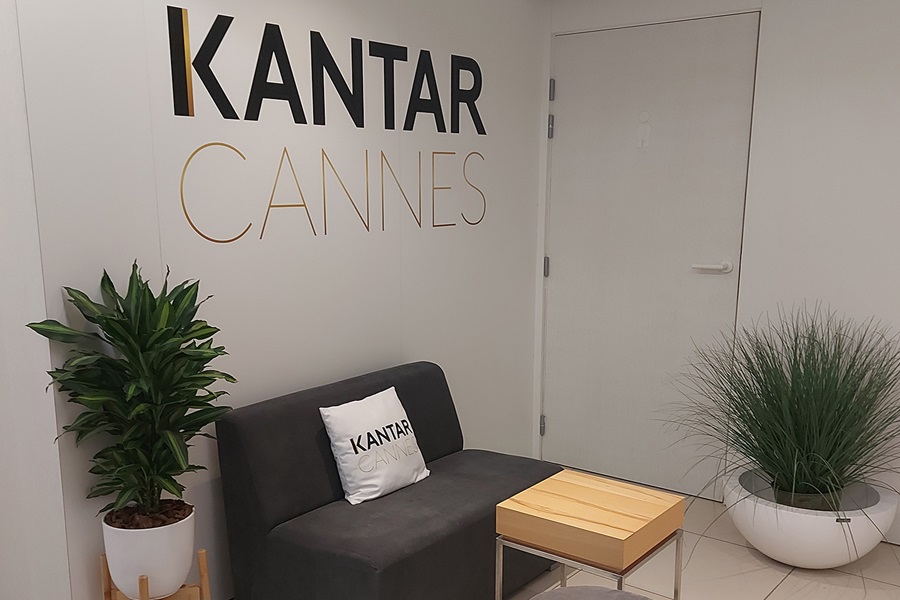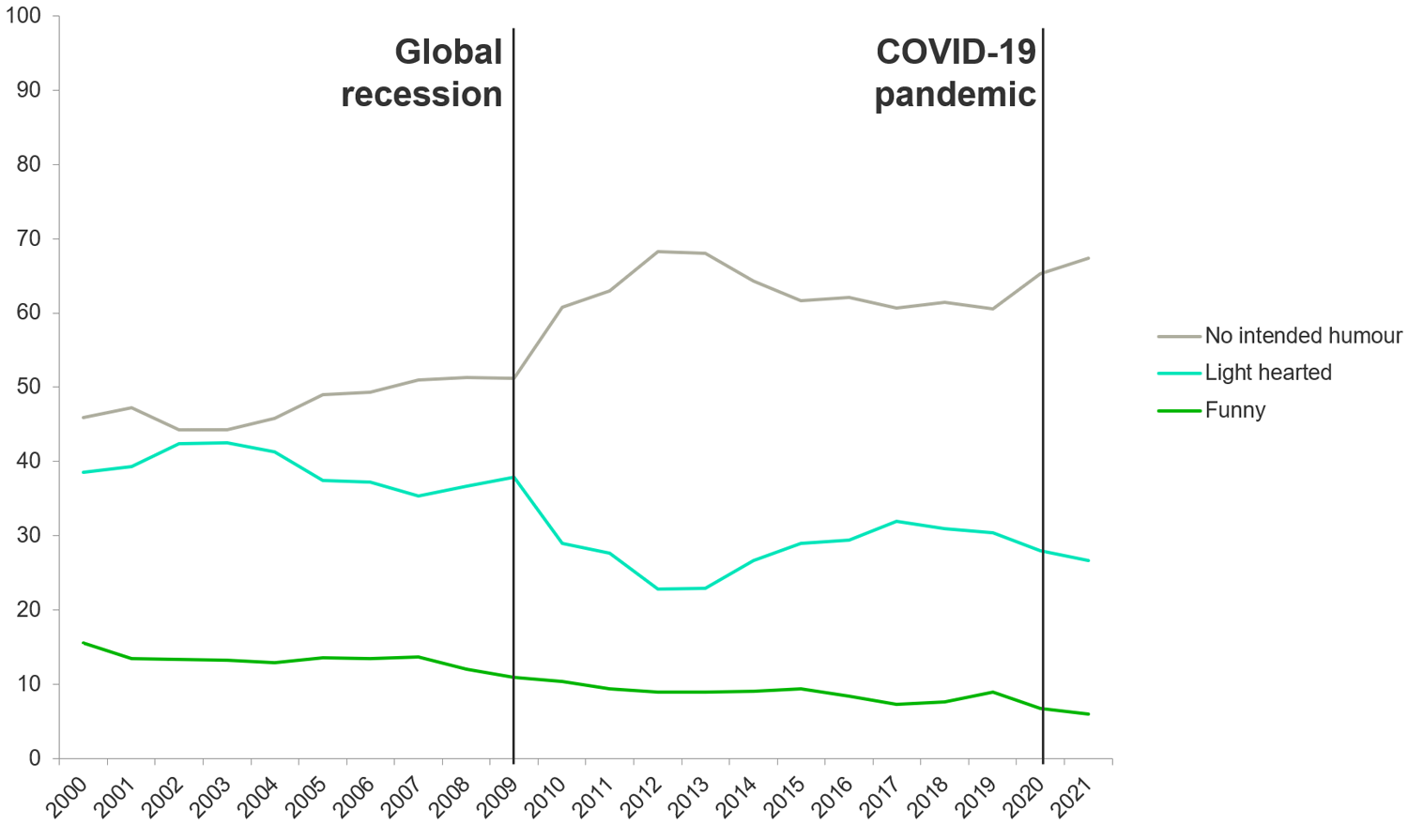After a three-year hiatus, adland descended on Cannes with great expectations, hungry for inspiration and community. The world around us has changed considerably since the last time the Festival happened face to face. A global pandemic, climate change, a war and the cost-of-living crisis have left indelible marks on the ways people and societies operate. This has shaped what people expect from brands and challenged brands to find new and better ways of doing things.
So, what have we learned from this year’s Cannes winners?
1. Win new audiences with creativity
We saw a true outburst of creativity from this year’s winners – moving beyond paid media. Many awarded brands took concrete action. Mibanco, a Peruvian bank, changed its internal policy to consider all married women as single, as in Peru financial institutions mandate that a married woman seeking a loan must obtain her husband’s signature on the loan application. Mibanco made an impact in the community and effectively challenged the sector to do better, earning it a Gold Lion in Brand Experience and Activation.
Other winners focused their creativity on designing new products to be meaningful to consumers today - such as the CO2AT that breathes oxygen. Last but not least, we saw plenty of examples of brands embedding themselves in environments where their audiences are, speaking to trends that interest them and working closely with creators to reach them. Dojacode is an excellent example at the intersection of all three. Many media brands ran sessions on how to navigate this space and build authentic content partnerships. You could meet TikTok or YouTube creators and Instagram influencers or learn from Twitch streamers in the Amazon Port.
2. The future is now
Web 3.0 and the Metaverse can seem hard to grasp. Cannes week brought lots of ideas about how to use the latest technological developments and what creativity will look like. The winner of Grand Prix for Digital Craft – Back Up Ukraine – gives Ukrainians a chance to protect their cultural heritage amidst war in a metaverse in the cloud, to not only preserve memory but potentially drive restoration efforts.
Snap partnered with Vogue to showcase some amazing Augmented Reality (AR) installations from leading fashion brands including Dior, Gucci and Versace. And on the Meta Beach, MINI announced the launch of a virtual MINIVERSE immersive 3D Racing Experience in Meta Horizon Worlds, while L'Oréal claimed to have racked up over 1 billion digital try-ons across their beauty brands.
The field is still new which means brands can define how they exist in it. How can they tell stories with the new tech? What new opportunities are there to connect with people?
3. Level up
We saw a shift towards ‘doing purpose’ and investing in activities that make a difference to people’s lives and the environment. Google’s Real Tone camera improves the image quality for people with darker skin tones. Dole Sunshine Company made a move towards its zero waste goal by partnering with Ananas Anam to use leftover pineapple leaves to create vegan leather.
Kantar’s Sustainability Sector Index reveals that 64% of people worldwide worry that brands engage in these topics for profit only. Brands engaging in activities with tangible impacts play a key role in addressing these concerns. While progress is being made, the ad industry looked in the mirror and rightly assessed that a lot of work needs to be done when it comes to diversity, equity and inclusion and sustainability.
The Unstereotype Alliance presented that there is more to be done. Not just who is on screen and behind the camera, but how they are portrayed. On the fifth anniversary of the Unstereotype Alliance, Kantar announced the launch of a new inclusion and diversity measure to help brands get this right in their advertising. Many speakers on the topic agreed brands should bring more humanity into the way they portray different people. Munroe Bergdorf, a transgender activist and model, raised this subject and Lupita Nyong’o advocated for brands to not “take away humanity out of the representation of [her] demographic.”
Several Greenpeace protests during the week urged the Cannes Lions Festival and the industry at large to sever its ties with the fossil fuel industry. And indeed, sustainability is a topic that many winning entries tackled in inspirational ways such as the Los Santos +3 degrees that illustrated the effects of climate change in the context of Grand Theft Auto. Brands need to keep tackling sustainability from different facets of their organization.
4. Lighten up
In the age of purpose, only a few winners left the audience in stitches, but those who did really lightened up the atmosphere and won people’s hearts. Yet again, humour came to the forefront. If brands lighten up, they can connect better with people and shake off some of the pretenses that consumers dislike.
The fact that humour was almost a no-show amongst the winners is a symptom of a broader trend where humour in advertising has been on the decline. Ryan Reynolds, Chief Creative Officer at MNTN and cofounder of Maximum Effort, advocated for brands to return to humour, especially given the tumultuous times we live in: “Ads should be funny. They’re ads. We shouldn’t contribute to the weight people are already carrying.” Hats off to Jif peanut butter, Visit Sweden and a handful of other brands who made the Awards crowd laugh out loud.
The use of humor has declined
Source: Kantar Link database
5. Deliver
While creativity is front and center at Cannes Lions, discussions about its effectiveness abounded, indicating that marketers are keeping the big picture in mind. Ryan Reynolds also called out the fact that brands are seemingly afraid of doing product advertising well and he said there was no shame to “get right to the product.” In fact, in his eyes, it is yet another way to be truthful with the audience as they are aware they are being marketed to.
The link between creativity and the bottom-line matters, and marketers are aware of that, with many discussions on performance marketing as well. However, the importance of staying clear on your goals and not thinking about your advertising in binary ways as either being about performance or not was clear: “Not everything you do has to be award winning, you can be effective in different ways” said Allesandro Manfredi, the CMO of Dove during a CMOs in the spotlight panel.
Cannes Lions highlighted the need to embrace the future without abandoning the fundamentals of effectiveness. Get in touch to find out what we’ve learned about creativity from the ads we’ve tested for the world’s leading brands. Each year our Creative Effectiveness awards evaluate the best TV, digital and static/outdoor ads and each year we learn even more about what makes great creative.


